Service dogs are some of the noblest working dogs. The tasks they perform – often in conditions our family dogs would panic over – are exceptional. Is it any wonder they’re so special? You may have noticed that more and more breeds are donning the “Service Dog” vest. It turns out any dog can step up as a service dog! If they meet the criteria and complete their training, no breed gets excluded. However, there are some breeds recognized as being the best service dogs time and time again.
Qualities of a Service Dog
Service dogs endure a lot. And not just the rigors of training (over 120 hours – and that’s to start!) In their day-to-day lives, they go out into public where there are sights, sounds, and smells they may not have encountered before. Meanwhile, they have to remain on-task and focused. While we often marvel at these dogs for their sweet appearance, we can forget they’re working dogs. (Not all service dogs wear vests)
So what makes a good service dog? It turns out they have some distinguishing characteristics:
- Intelligence: Not only do these canines perform complex tasks, but they learn A LOT of commands. Even trickier, they have to know when NOT to obey. Guide dogs, in particular, need to recognize dangerous situations their handler can’t see.
- Friendliness: Service dogs go out in public. As such, they need to have an approachable demeanor. After all, if their person needs help, they can’t frighten that help away. While Pit Bulls make great service dogs, the negative image of the breed often hampers them.
- Calm Demeanor: Again, these dogs are in public A LOT. They can’t disturb the environment around them. Even with new or novel stimuli, the service dog can’t react or startle. Doing so could put their person at risk.
- Work Ethic: Service dogs are working dogs. A couch potato isn’t going to benefit someone who needs help throughout the day. These dogs need the drive to work.
- Bonding: While some service dogs are returned and adopted out again, this isn’t the norm. Most service dogs get paired with their person for life. A connection is vital for a functional relationship. Dogs that don’t form attachments aren’t great choices.
- Reliability: A lot of the tasks a service dog performs are repetitive. Not only can they not get bored, but they also need to repeat that task consistently.
Some people throw “tidiness” into the mix. However, a lot of the most recommended breeds? Yeah, they’re big shedders. So I’m going to skip that one. Why? Because what better bonding activity is there than brushing your dog every day!
Best Service Dogs
No one breed of dog is suited for one particular type of service. These breeds exhibit the above qualities in spades. What makes them excellent service dogs suits them to just about any service (exceptions are noted).
German Shepherds
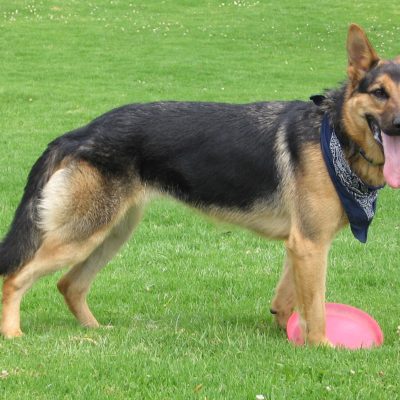
Most people think of German Shepherds in the guard dog business, but they’re instrumental service dogs. In fact, Buddy was the first guide dog back in 1928! No wonder – a lot of the same characteristics of a guard dog parallel a good service dog. Shepherds are large enough to assist with mobility and guide work, while their sensitive noses make them great alert dogs. They attach to their person and remain focused on them without prompting. Unhappily, Shepherds shed – A LOT. So while they make fantastic service dogs, that’s something to take into consideration.
Golden Retrievers

Goldens are popular family dogs due to their sweet, patient natures. That same patience makes them ideal service dogs for people with psychiatric concerns or children with autism. Goldens are large enough to help those with mobility issues. As a breed with a “soft mouth,” they can retrieve objects without damaging them. They’ve worked as guide dogs for years. Goldens are brilliant, and they’re easy to train. Who doesn’t smile when they see a Golden’s grinning face? These cheerful dogs get welcomed everywhere. However, they do shed quite a bit, so regular brushing is in order.
Great Danes
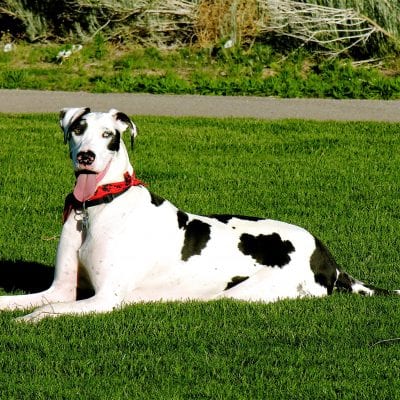
Great Danes have the stamina and temperament to carry out service work. They remain calm in unusual situations, and their attention is entirely for their person. Danes are ideal for mobility work – no one can claim they can’t support a person! Service Dog Project works exclusively with Danes. It turns out their sweet temperament also makes them great for psychiatric service dogs. They’re intelligent, and they WILL keep you out of trouble. While Danes don’t have long or thick coats, they do DROOL. (A little different tidiness issue to cope with)
Labrador Retrievers
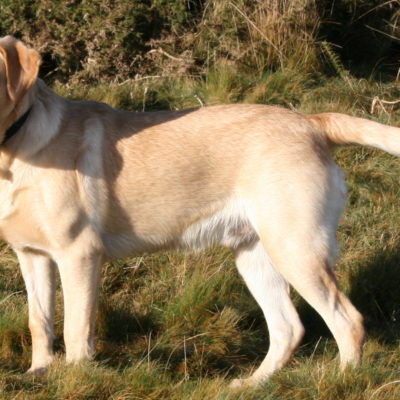
Labs share the family dog list with Goldens. No surprise that they also share the service dog list for a lot of the same reasons. Labs are powerful dogs, and they form strong attachments with their people. Labs work as service dogs in every capacity, from mobility to guide to alert dogs. They also have soft mouths – it’s a hallmark of the Retriever Group. Fun Fact: Chocolate Labs have proven to be the calmest of the three color variations. If you notice more Chocolates in vests, this is why.
Pomeranians

I know what you’re thinking – Pomeranians? But they’re small! True, but Poms fill an essential niche in the service dog world: alert dogs. Poms have an incredible sense of smell, and they work to save the lives of those with diabetes and epilepsy every day. No, a Pom isn’t a great choice if you need physical assistance. Need a hearing dog, though? A Pom can do that! Poms are important reminders that not every disability is apparent at first glance (invisible illnesses exist). Also, though tiny, these dogs aren’t afraid to work! Poms have fluffy coats that require regular grooming. However, if your disability allows for a mini worker, they’re ideally situated for apartments.
Poodles

The Standard size of Poodle is used the most frequently for service work from a practical standpoint. A Miniature Poodle simply can’t support a human. However, if you don’t have physical needs, the smaller sizes ARE available. Poodles are smart, highly trainable, dependable, and loyal. Their innate curiosity makes them capable of puzzle-solving. They’re capable of applying their training to unforeseen circumstances, which is extremely helpful in a service dog. Poodles are as close to hypoallergenic as you can get. While their coat requires regular grooming, they DON’T shed. And people respond positively to Poodles. They have friendly faces and are instantly recognizable.
All Service Dogs are Champions
The best service dogs? Every service dog! These canine champions are heroes for the work they do every day to bring normality to their people’s lives.
And the simple reality is that ANY dog has the potential to be a service dog. As a matter of fact, Assistance Dogs International rescues dogs from shelters for their training program!
So while you can’t interact with that service dog on duty, maybe tip your hat or give a little salute. That furry hero deserves it!

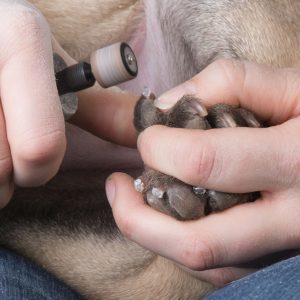
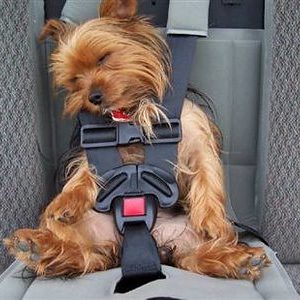


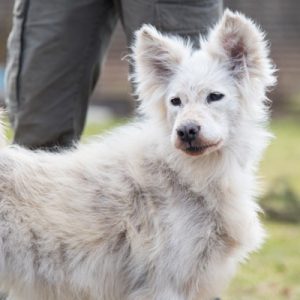
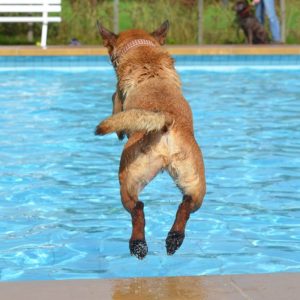

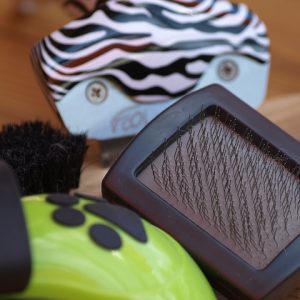



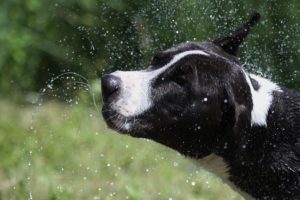
No comment yet, add your voice below!